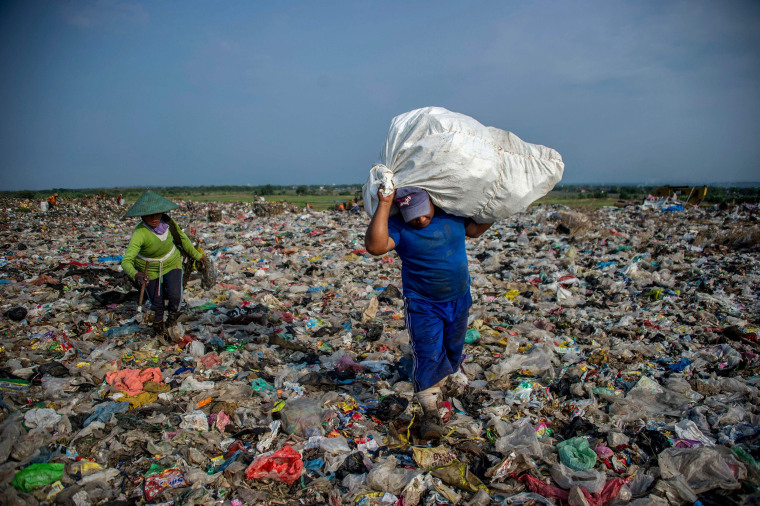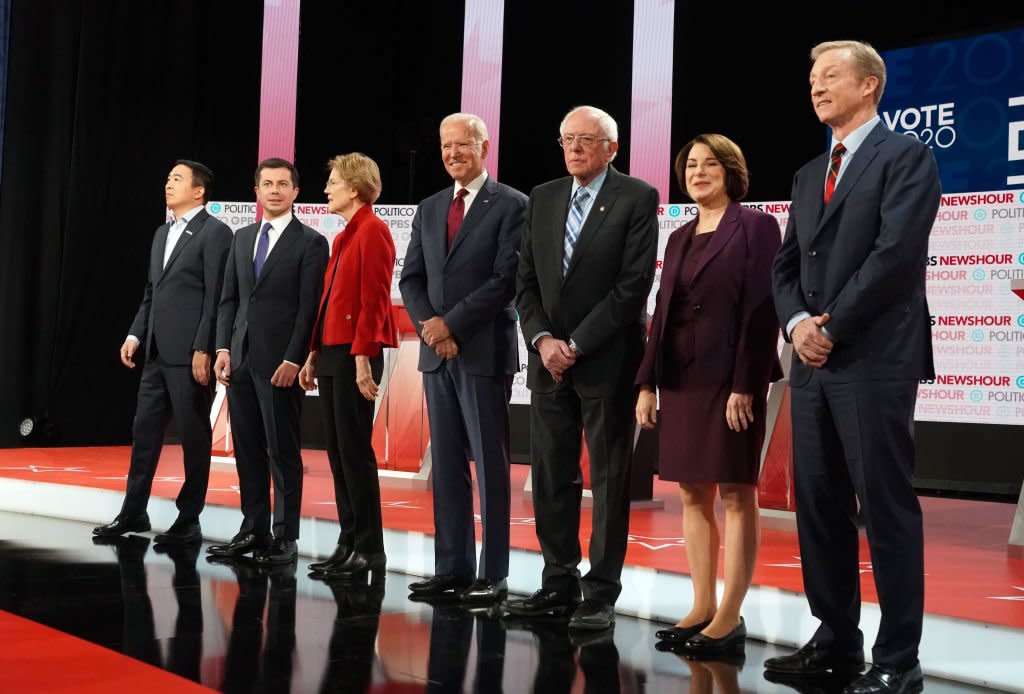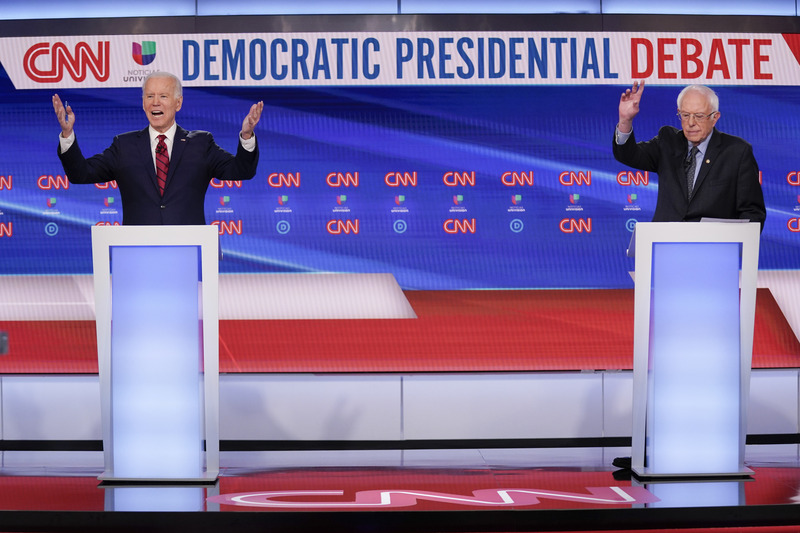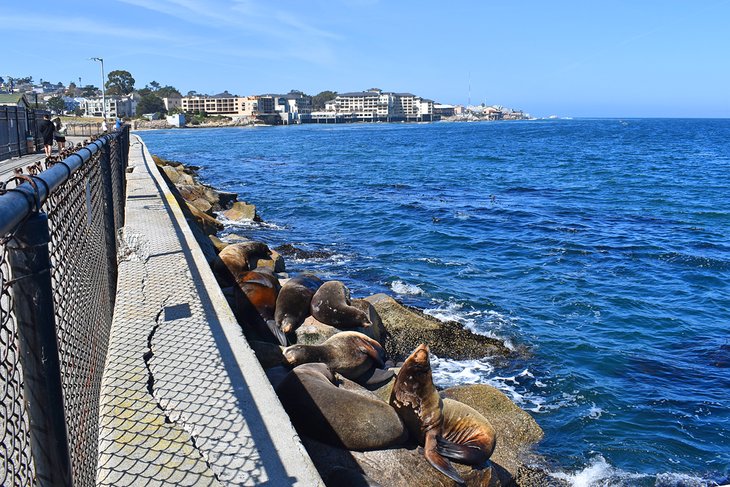April 1, 2020
Commemorating Earth Day
Story from Earth Day web site.

On April 22, 2020, Earth Day will be 50 years old. The theme this year is “The Change is Coming” and will feature the youth movement and many other participants. It will highlight the huge challenge facing humanity and how that can be the source of opportunity for future economic activity.
Born out of the awareness of environmental degradation, the movement pointed to the oil spills, smog and pollution. In the late 1960’s Ohio’s Cuyahoga River literally caught on fire several times, raising awareness of pollution and the need for regulations.
On April 22, 1970, Earth Day came into existence. About 10% of the 1970 American population (20 million people) were mobilized to take to the streets to encourage a new way to look at our planet.
The actual founder of Earth Day was Senator Gaylord Nelson (D-WI), an avowed conservationist. He encouraged President John F. Kennedy in 1963 to make environmental issues a national campaign. He founded Earth Day in 1970 as a Teach-In experience and it is now celebrated in 193 countries.
Climate change was not the main issue of the first Earth Day event. Environmental laws grew out of the effort, such as the Clean Air Act, the Clean Water Act, and the Endangered Species Act. The process later led to a greater awareness of climate change.
There have been many efforts to steer the country and the world toward managing the global warming problem. Here are two international agreements and one more recent proposed U.S. resolution:
- The Kyoto Protocol adopted in 1997 at COP 3 (Conference of Partners) by 41 countries and the European Union calling for the reduction of six greenhouse gases to 5.2% below 1990 levels during a “commitment period” of 2008 – 2012. It was noticeably not signed by the U.S. and China.
- The Paris Agreement that came out of the UN Climate Conference of 2015 (COP 21), ratified by 187 countries and entered into force in November, 2016, was designed to limit greenhouse gases by limiting the world’s temperature rise to less than 2°C (3.6°F). The U.S. signaled its intent to pull out of the agreement set to happen on November 4, 2020.
- The Green New Deal, a comprehensive economic plan based on FDR’s New Deal, calls for a 10-year mobilization with elements that would curb greenhouse gases and overhaul the U.S. economic system to address economic justice. Bernie Sanders highlights the plan in his campaign for President.
I. Climate Change
Stories from EcoWatch, Mar. 23, 2020; Cato Institute website, Mar. 25, 2020.
Governments around the world have generally come together on the Coronavirus despite our President’s ignorance in public health matters and his disdain for everything foreign. On the global level there are some differences of opinion and tactics, but there’s a somewhat unified effort to mitigate the problem. The alarm was sounded and swift action is being taken. The virus has prompted each country to institute its own procedures within its borders and there’s a collaborative effort to share ideas to meet the challenge. The U.S. is more critical of other countries than is necessary, but for the most part countries are working together to solve a global problem.
Climate change scientists are looking at the dramatic difference in response by world leaders to COVID-19 compared to the way climate change is being handled. Computer models are showing as many as 250,000 people will be dying per year due to climate change in about two decades. It’s obvious that COVID-19 is swift-acting and demands swift action to eradicate. It’s also obvious that the swifter the action on climate change the better are our chances of maintaining a livable world. Yet, government leaders have only the will to respond to each new crisis as it arises. Diseases are expected to be part of climate change and it’s even possible that COVID-19 is related to climate change and even more strange viral diseases are in the offing.
There’s a major difference between the way COVID-19 and climate change are being handled in the U.S. We know there are several powerful Conservative and Libertarian groups that are corrupting politicians, especially Republicans. The Cato Institute, Americans for Prosperity, Heartland Institute, Science and Public Policy Institute, The Cornwall Alliance, and others, including the Koch Brothers, that insist that global warming is not based on science but on a liberal political agenda. They have access to troves of printed, video-taped, and web page misinformation to prove their point and even have PhD scientists on their side. They can be thought of as a cartel or bloc and also have exorbitant power over politicians.
How much power does this bloc have? The President takes cues from them and has received a lot of advice in the form of open public letters and commentary. The communiques are often in the form of something more professional looking than Tweets and are sometimes a bit cryptic. The President is not above interpretations that suit his economic goals, which is usually good for the profits of bloc members. The Cato Institute’s letter this week can be interpreted either as sincere empathetic advice or as a sneaky way to get around government regulations.
In conclusion, the Coronavirus is a more immediate issue than climate change and has not had time to become politicized in the way climate change has. The same forces, however, are finding ways to pull strings to align Coronavirus solutions with their goals. The bloc is fundamentally concerned with protecting current schemes to make profits and finding new ways to do that.
II. Fossil Fuels
Richmond Sued for Ban on Coal-Petcoke Terminal
Story from East Bay Express, Mar. 14, 2020.
 After a contentious battle in City Hall on January 14, the Richmond City Council banned the storage and handling of coal and petcoke (petroleum coke) as a public health hazard. This action would phase out the existing Levin-Richmond Terminal within three years. The terminal, in operation since 1981, ships most of the coal to Japan and South Korea and the petcoke to other countries. Richmond’s mayor, Tom Butt, presided over the final vote.
After a contentious battle in City Hall on January 14, the Richmond City Council banned the storage and handling of coal and petcoke (petroleum coke) as a public health hazard. This action would phase out the existing Levin-Richmond Terminal within three years. The terminal, in operation since 1981, ships most of the coal to Japan and South Korea and the petcoke to other countries. Richmond’s mayor, Tom Butt, presided over the final vote.
Two months later, in March, the City of Richmond received suits in federal and state courts from the Levin-Richmond Terminal Corp., Wolverine Fuels (the Utah coal export company) and Phillips 66 (manufacturer of the petcoke). They allege the ban violates their constitutional rights and that the City of Richmond cannot regulate transport by train.
Bay Area experts maintain open-air mounds and rail cars full of coal produce dust containing such poisons as arsenic, mercury, cadmium, vanadium and chromium that gets scattered throughout the Bay Area. Such toxins are causes of cancer, birth defects, lung inflammations, possible lung and heart disease, and neurological damage. Downtown Richmond has shown higher levels of particulate matter associated with heart disease, asthma and other lung diseases, including cancer. The litigants maintain that their air monitoring has shown no risk to people.
This story is still developing and there will be more to follow.
III. Water, Food, Forests and Pesticide Reports
A Corporate Solution to the Plastic Pandemic
Story from Rolling Stone, Mar. 3. 2020; the Plastic Pollution Coalition web page.
A new carefully-written bill is gaining ground that captures the scope of the plastics pollution issue. Sen. Tom Udall (D-NM) along with Sen. Jeff Merkley (D-OR), Rep. Alan Lowenthal (D-CA), and Rep. Katherine Clark (D-MA) are authors and sponsors of the Senate and House versions of the Break Free From Plastic Pollution Act of 2020 (S 3263 & HR 5845). Its aim is to amend the Solid Waste Disposal Act in an attempt to make plastic producers responsible for much of the waste they create. The bill faces an uphill battle in today’s Congress, especially with corporations opposing plastic regulations. Click this link to let your Senators and Representatives know how you think they should vote on this.
Udall’s bill would:
- Adopt some European practices by banning single-use plastics, such as plastic bags, Styrofoam cups,
 and other containers and utensils. Drinking straws would be provided only upon request.
and other containers and utensils. Drinking straws would be provided only upon request. - Expand markets for recycled plastics by regulating plastic content.
- Impose a 10-cent deposit on all containers sold.
- Make product manufactureres responsible by requiring them to design, manage, and finance programs to collect and process waste.
- Ban the U.S. from exporting plastic waste to developing countries.
- Halt construction of new plastics facilities.
It’s impossible to say enough about the enormous plastic problem in today’s world. Plastic is present everywhere in our lives – it’s in the oceans, the soil, in public drinking water systems, and even literally raining down on us. In a way it’s like a disease or pandemic. As Sen. Udall says, “We are consuming a credit card’s worth of plastic each week.” We’re exposed to tiny particles from tap water, food and air.
IV. Politics
Democratic Debates
Stories from FiveThirtyEight, Mar. 15; Grist, Dec. 20, 2019; The Hill, Feb. 19, 2020; VPR, Mar. 15, 2020.

- Would you support relocating communities displaced by climate change?
- Would you sacrifice oil and gas growth, as well as jobs, for a green economy?
- How could we get to net-zero carbon emissions by 2050 without nuclear power?
The candidates chimed in on these questions, and all seemed rather well-informed about climate change and other environmental issues. This is in stark contrast to most Republicans.
On Feb. 19, we got a general view of the candidates still running: Klobuchar, Buttigieg, Biden, Sanders, Warren, and Bloomberg. Warren showed some depth by pointing out corruption in Congress, and how important it is to roll back the filibuster policy crucial to getting things done in Congress. Buttigieg tried to show how important it is to take action but didn’t spell it out well. Klobuchar and Bloomberg cited how natural gas is important as a transition fuel, while Warren and Sanders would ban fracking all together. Biden emphasized how much needs to be done but offered no real plan.
Biden started the campaign as the one who would use double-talk to show that he knows something, but who would probably play along with the prevailing corporate structure. He was thought of as the candidate who would use what is now being called an outdated approach: market-based policies for a greener American economy, similar to Obama. He has since, however, evolved during the debate process and has become more articulate on the issue. This may become clearer as the campaign evolves.
 On March 15, Bernie Sanders and Joe Biden were the only two candidates on stage without an audience due to the Coronavirus –the pandemic held more debate attention than anything else. Most of the debate had nothing to do with climate change but there were subtle references. Biden did mention his Global Climate Protection Act of 1986 & 1987 that became part of a State Department funding bill. That bill was signed into law by Ronald Reagan and required the President to set up a Task Force to plan climate change mitigation. Under Reagan, climate change was not a priority and nothing materialized. Biden also maintained he has a grip on climate change with other nations and can accomplish a lot based on his past experiences with the international community. He did admit the Paris Agreement is a path forward.
On March 15, Bernie Sanders and Joe Biden were the only two candidates on stage without an audience due to the Coronavirus –the pandemic held more debate attention than anything else. Most of the debate had nothing to do with climate change but there were subtle references. Biden did mention his Global Climate Protection Act of 1986 & 1987 that became part of a State Department funding bill. That bill was signed into law by Ronald Reagan and required the President to set up a Task Force to plan climate change mitigation. Under Reagan, climate change was not a priority and nothing materialized. Biden also maintained he has a grip on climate change with other nations and can accomplish a lot based on his past experiences with the international community. He did admit the Paris Agreement is a path forward.
Sanders spoke of the moral problem of profiteering while we move the cost of caring for the environment to future generations. He quoted the IPCC’s (International Panel on Climate Change) reports on why it’s imperative to do something sooner rather than later, and stressed the importance of aligning with other countries of the world in the Paris Agreement. He spoke of his Green New Deal that would mandate a major overhaul of the American energy system. He has a sincere belief in science and that the petroleum industry has a stranglehold on this nation. However, throughout the debates, he failed to give the audience a solid feel for the Green New Deal.
V. Miscellaneous Items
Monterey Bay Aquarium Live Web Cams
Story from montereybayaquarium.org.
To get a much-needed break from the Coronavirus crisis, click on the title link above which will take you to the Monterey Bay Aquarium’s website. The Aquarium is currently working with only a skeleton crew onsite while many employees are working at home by monitoring web cams. You too can see the Aquarium’s marine life by watching any one of ten live web cams, available daily from 7:00 am to 7:00 pm. As you watch, the camera’s view may change periodically. Here’s a list of the ten cams:
- Aviary Cam
- Coral Reef Cam
- Jelly Cam
- Kelp Forest Cam
- Moon Jelly Cam
- Open Sea Cam
- Penguin Cam
- Sea other Cam
- Shark Cam
- Monterey Bay Cam
Happy viewing!
VI. Events
Friday, Apr 10, 9:00 – 4:30 pm, Fanplastical
- Beautiful art from reclaimed materials.
- Reclaim Room, 701 Amador St., SF.
Wednesday, Apr 22, all day, Earth Day
- Many online virtual events
- Stay tuned for added material.
Thursday, Apr 23, 9:00 – 4:30 pm, Fanplastical
- Beautiful art from reclaimed materials.
- Reclaim Room, 701 Amador St., SF.
Thursday, Apr 23, 11:00 am — 1:00 pm, Stop the Money Pipeline @ Chase
- An Earth Week event
- Civic Center Plaza, SF.
Sunday, May 3 & May 10, 11:00 am – 1:00 pm, How to Use Social Media to Drive Environmental Change
- The 2nd and 3rd sessions on bringing climate change and other environmental issues into social media. Led by Jessica Lane Robinson.
- Ecology Center, 2530 San Pablo Ave. Berkeley.
Other Sources of Events:
Friends of the Earth – located at the David Brower Center, Berkeley.
350Bay Area – Includes other 350.org branches in the Bay Area.
Planet Drum – San Francisco bioregion awareness center.
Ecology Center – Berkeley sustainability center.
David Brower Center – The environmental center in Berkeley.
Sunflower Alliance – Bay Area umbrella organization for activism.
Sierra Club San Francisco – Bay Area website.
The End